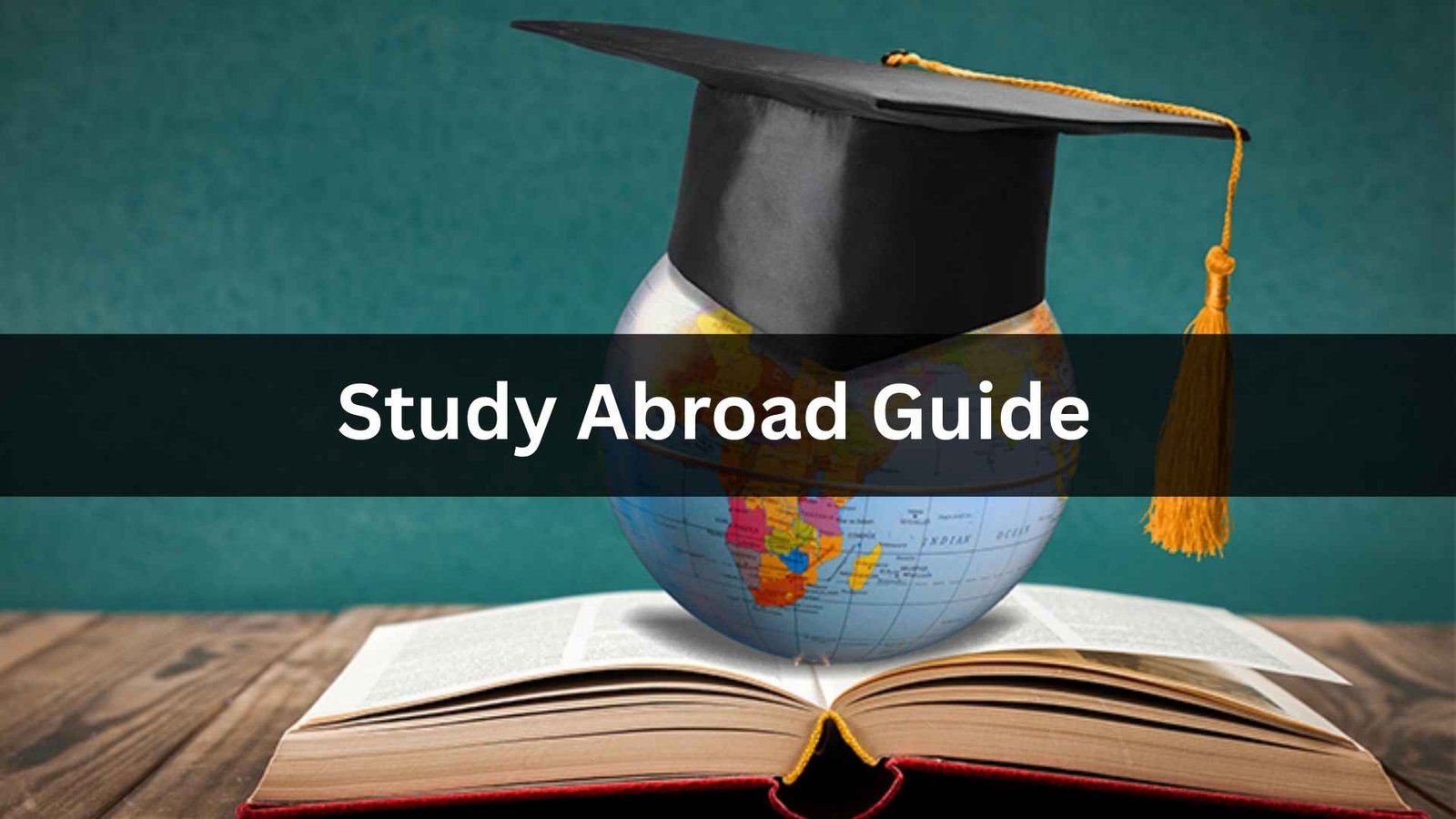Studying abroad is a dream for many students, offering opportunities to gain international exposure, world-class education, and personal growth. However, the process can seem daunting, from choosing the right program to handling applications, visas, and finances. This Study Abroad Guide by Study Abroad Help is designed to walk you through every step, providing actionable tips, scholarship information, and expert advice to make your study abroad journey smooth and successful.
Studying abroad opens doors to international education opportunities, cultural diversity, and enhanced career prospects. It helps students develop global perspectives, improve language skills, and build a network of contacts worldwide. With universities in countries like the USA, UK, Canada, Australia, and Germany offering world-class programs, preparing to study abroad has never been more rewarding. official website
Step 1: Choosing the Right Study Abroad Destination
Selecting the right study abroad destinations is crucial. Consider factors like:

- Course Availability: Research universities offering your desired program.
- Language: Ensure you meet the language requirements, such as TOEFL or IELTS.
- Cost of Living: Evaluate tuition fees, accommodation, and living expenses.
- Cultural Fit: Choose a destination where you can adapt comfortably.
- Career Opportunities: Look at post-study work options and employment prospects.
Popular destinations include the USA, Canada, UK, Australia, Germany, and Japan. Each has unique advantages, and your choice should align with your academic and personal goals.
Step 2: Understanding the Study Abroad Application Process
The study abroad application process can be complex, but careful planning can simplify it. Key steps include:
- Research Universities: Identify programs that match your interests.
- Check Eligibility: Review academic requirements, language proficiency, and standardized test scores.
- Prepare Documents: Academic transcripts, letters of recommendation, statement of purpose, and CV/resume.
- Submit Applications: Follow each university’s specific application guidelines.
- Follow Up: Track application status and respond to university communications.
Pro Tip: Start the application process at least 12 months in advance to avoid last-minute stress.
Step 3: Student Visa Requirements
Obtaining a student visa is a crucial step in preparing for studying abroad. Visa requirements vary by country but typically include:
- Acceptance letter from a recognized university
- Valid passport
- Proof of financial stability
- Language proficiency certificates
- Health insurance and medical records
- Visa application fees
Some countries also require interviews or biometric data. Proper preparation and timely submission ensure a smooth visa process. Japan Visa for Indians
Step 4: Financing Your Study Abroad Journey
Financing is one of the biggest concerns for international students. Options include:
- Scholarships for international students: Many universities and organizations offer merit-based or need-based scholarships.
- Financial aid for studying abroad: Loans and grants can help cover tuition and living costs.
- Part-time Work: Some countries allow students to work part-time during studies.
- Assistantships: Teaching or research assistantships may provide stipends or fee waivers.
Tip: Apply early for scholarships and financial aid to maximize your chances.
Step 5: Preparing for Studying Abroad
Once admissions and visas are secured, focus on preparing for studying abroad:
- Accommodation: Arrange on-campus housing or private rentals.
- Travel Arrangements: Book flights and plan local transportation.
- Health Preparations: Get required vaccinations and medical check-ups.
- Cultural Orientation: Learn about local customs, laws, and etiquette.
- Packing: Include essentials like documents, electronics, clothing, and personal items.
Preparation ensures a smooth transition and helps you adjust quickly to a new environment.
Step 6: Tips for Studying Abroad
Here are practical tips for studying abroad to make the most of your experience:
- Engage in Campus Life: Join clubs, societies, and events to make friends and build networks.
- Manage Finances: Budget wisely and track expenses to avoid financial stress.
- Explore Locally: Travel and experience local culture for personal growth.
- Focus on Academics: Stay disciplined and seek help from professors when needed.
- Maintain Health: Prioritize mental and physical well-being.
Following these tips will help you thrive academically and socially during your international studies.
Step 7: Study Abroad Programs
There is a wide range of study abroad programs to choose from:
- Undergraduate Programs: Full-degree programs in various disciplines.
- Graduate Programs: Master’s and Ph.D. programs for advanced studies.
- Exchange Programs: Short-term study opportunities in partner universities.
- Internships Abroad: Gain practical work experience alongside studies.
- Language Courses: Improve foreign language skills before enrolling in full-time programs.
Choose programs that match your goals and provide opportunities to grow professionally and personally.
Step 8: How to Apply for Study Abroad
Knowing how to apply for study abroad is essential. Steps include:
- Research universities and programs.
- Check specific application deadlines.
- Gather academic and personal documents.
- Write compelling SOPs and motivation letters.
- Apply online and pay application fees.
- Track application status and respond promptly to requests.
Following a systematic approach increases your chances of success.
Step 9: Scholarships for International Students
Scholarships can significantly reduce the financial burden. Popular options include:
- Merit-Based Scholarships: Awarded based on academic achievements.
- Need-Based Scholarships: For students demonstrating financial need.
- Country-Specific Scholarships: Offered by governments or universities for specific nationalities.
- Program-Specific Scholarships: Linked to certain courses or research areas.
Research and apply for scholarships early to maximize funding opportunities. Study in Canada 2025
FAQs About Studying Abroad
- How much does it cost to study abroad?
Costs vary by country and program, including tuition, accommodation, living expenses, and travel. Scholarships and financial aid can help offset costs. - How long does it take to process a student visa?
Visa processing time depends on the country and time of year, typically ranging from 4 weeks to 3 months. - Can I work while studying abroad?
Many countries allow part-time work for students. Check local regulations to stay compliant. - What documents are required for studying abroad?
Essential documents include academic transcripts, SOP, letters of recommendation, passport, language test scores, and financial proof. - How do I choose the best study abroad program?
Consider program content, university reputation, location, costs, career prospects, and cultural fit when selecting a program.
Conclusion
Studying abroad is a life-changing opportunity that requires careful planning, preparation, and guidance. This Study Abroad Guide by Study Abroad Help provides insights into destinations, programs, applications, visas, scholarships, and essential tips to ensure a successful journey. With dedication, the right information, and proper support, your dream of studying abroad can become a reality.
Take the first step today—call Study Abroad Help at +91 8700956038 to start your international education journey with expert guidance. Study Abroad Scholarships in 2025


COMMENTS